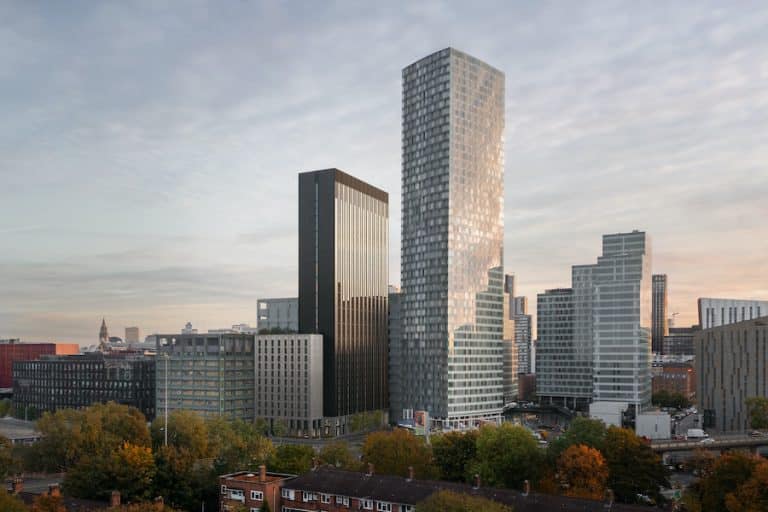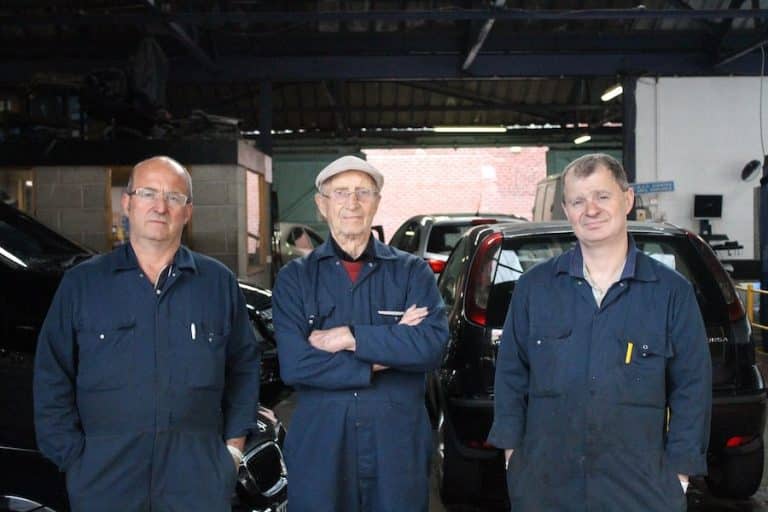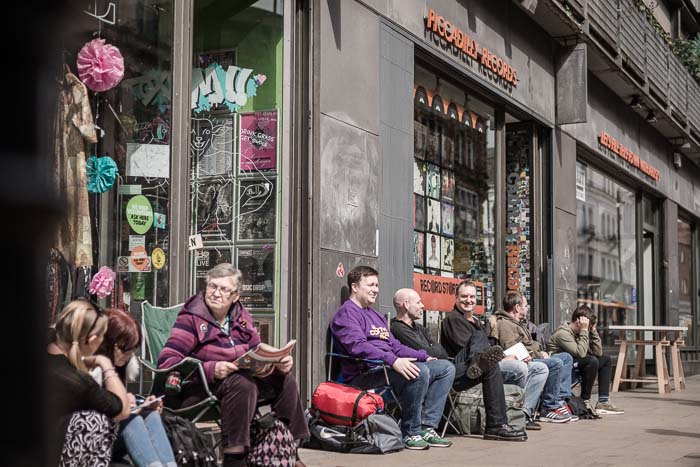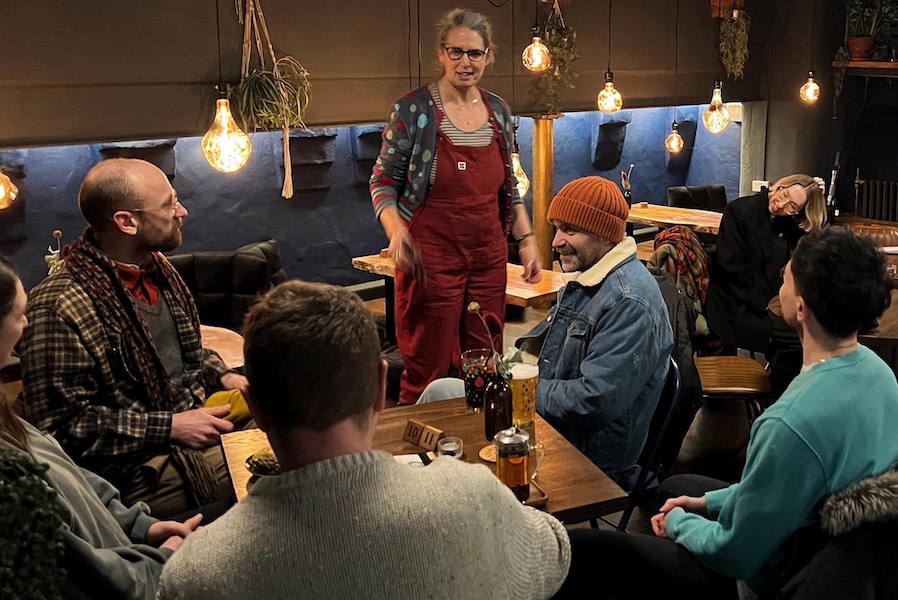Manchester Prize to Award £1 Million Annually for Groundbreaking AI Research
- Written by I Love MCR
- Last updated 2 years ago
- History

The prize will award £1 million annually for the next decade to the individual or team who makes the most significant contributions to the field of AI.
This award will be named the Manchester Prize, to celebrate the city’s rich heritage in the field of computing.
One of the first ever computers, The Baby, was created in Manchester at the University in 1948.
Because of this, Manchester is often considered the birthplace of modern computing.
The goal of the prize is to stimulate the development of exceptional AI research in the United Kingdom, according to Jeremy Hunt.
In addition, the Budget has allocated approximately £900m for the establishment of an AI research resource and the creation of an “exascale” supercomputer, with the first payments scheduled for this year.
Exascale computers, which can perform at least a quintillion operations per second, have a variety of applications, including weather forecasting, climate change modelling, and AI.
Moreover, the Chancellor has unveiled a 10-year, £2.5bn research and innovation program for quantum computers.
History of The BABY
The Baby computer, also known as the Manchester Small-Scale Experimental Machine, was the world’s first electronic stored-program computer.
It was developed by a team of researchers led by Frederic Williams and Tom Kilburn at the University of Manchester in the late 1940s and early 1950s.
The machine was designed to test the feasibility of electronic computers and to provide a platform for further research in the field.
The Baby computer was built using over 550 vacuum tubes and a series of cathode ray tubes to store and manipulate data.
It had a memory capacity of just 32 words, each of which could hold a maximum of 32 bits. Despite its limited capabilities, the Baby was a groundbreaking invention that paved the way for modern computing.
The Baby was first demonstrated on June 21, 1948, and its success marked a turning point in the history of computing.
Before the Baby, computers were large, expensive machines that were limited in their functionality. The Baby, however, was small, relatively cheap to build, and could perform a range of tasks. Its success led to further research and development in the field, ultimately leading to the development of the modern computer.
Today, the Baby computer is remembered as an important milestone in the history of computing. While it may seem rudimentary compared to modern machines, its impact on the field cannot be overstated. The Baby paved the way for the digital revolution that has transformed the world in the decades since its creation.
On 21 June 1948, at precisely 11 am, the Small Scale Experimental Machine (SSEM), affectionately known as “The Baby,” commenced its first program.
After executing 3.5 million calculations, it required 52 minutes to arrive at the correct result.
During this operation, The Baby made history by being the first computer to run an electronically stored program in its memory, as opposed to on paper tape or through hardwiring.
The Baby isn’t the only instance of Manchester based tech being at the forefront of computer technology.
Following this, In 1951, the Moston Ferranti factory produced the world’s first commercially available computer, the Ferranti Mark 1.
During the 1980s, the first ARM chips, which now power smartphones around the world, were co-designed by a Mancunian. Millions of 1980s home computers like the ZX Spectrum and BBC Micro relied on ULA microchips developed by Ferranti in Manchester.
Still today, there is a wealth of technical innovation happening across the city.
Manchester is a city of computing so it is fantastic to see it recognised for its contributions in this field.
Here’s the full statement the Chancellor made: “To strengthen our position in artificial intelligence (AI), in which the UK hosts one-third of European companies, I’m accepting all nine of the digital technology recommendations made by Sir Patrick Vallance in the review I asked him to conduct in the autumn statement.
“I can report that we will launch an AI sandbox to help innovators get cutting-edge products to market. We’ll work at pace with the Intellectual Property Office to provide clarity on IP rules so generative AI companies can access the material they need. And we’ll ask Sir Patrick’s successor Dame Angela McLean to report before the summer on options on growth duty for regulators.
“Because AI needs computing horsepower I today commit around £900m of funding to implement the recommendations of the computing review for an exascale computer. The power needed by AI’s complex algorithms can also be provided by quantum computing. So today we’ll publish our quantum strategy to set out our ambition to be a world-leading quantum-enabled economy by 2033 with a research and innovation programme totalling £2.5bn.
“I also want to encourage the best AI research to take place in the UK so we’ll award a prize of £1m every year for the next ten years to the person or team that does the most ground-breaking British AI research.
“The world’s first stored programme computer was built at the University of Manchester in 1948 and was known as the Manchester Baby. 75 years later the baby has grown up so I will call the AI award the Manchester Prize in its honour.”
If you’re curious about The Baby, the Science and Industry Museum have a full-scale replica, built from 1940s vintage parts, that delights hundreds of thousands of visitors a year.
Kids marvel that it’s the ancestor of their phone or tablet (and try to imagine a pre-digital world) and our talented team of volunteers inspire wonder by running programs on it live in the gallery, demonstrating how far computing has come since 1948.
- This article was last updated 2 years ago.
- It was first published on 20 March 2023 and is subject to be updated from time to time. Please refresh or return to see the latest version.
Did we miss something? Let us know: press@ilovemanchester.com
Want to be the first to receive all the latest news stories, what’s on and events from the heart of Manchester? Sign up here.
Manchester is a successful city, but many people suffer. I Love Manchester helps raise awareness and funds to help improve the lives and prospects of people across Greater Manchester – and we can’t do it without your help. So please support us with what you can so we can continue to spread the love. Thank you in advance!
An email you’ll love. Subscribe to our newsletter to get the latest news stories delivered direct to your inbox.
Got a story worth sharing?
What’s the story? We are all ears when it comes to positive news and inspiring stories. You can send story ideas to press@ilovemanchester.com
While we can’t guarantee to publish everything, we will always consider any enquiry or idea that promotes:
- Independent new openings
- Human interest
- Not-for-profit organisations
- Community Interest Companies (CiCs) and projects
- Charities and charitable initiatives
- Affordability and offers saving people over 20%
For anything else, don’t hesitate to get in touch with us about advertorials (from £350+VAT) and advertising opportunities: advertise@ilovemanchester.com


The Manc aerobics queen who trained the Corrie cast is helping raise charity cash

Ancoats to get even cooler as independent market set for MOT garage site

“Manchester is not Britain’s second city, it’s the first” – Jeremy Clarkson
















